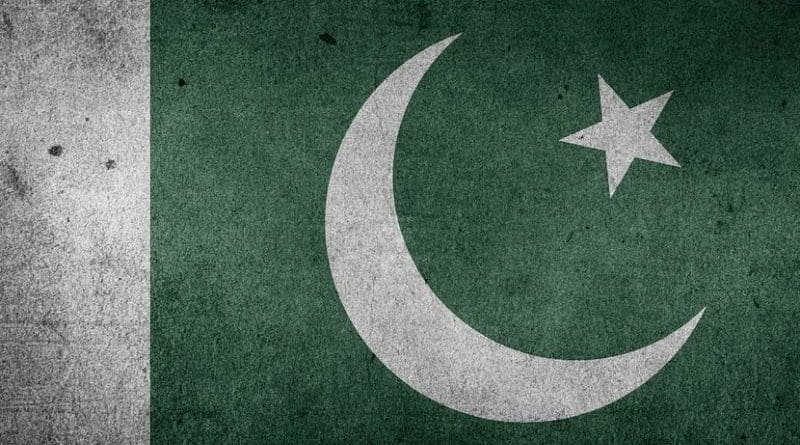Pakistan: The Role Of Establishment In Governing The Land Of Pures – OpEd
From the creation of Pakistan the role of establishment in the politics of Pakistan is one of the romances of history. The establishment has been playing the role of a third umpire in Pakistani politics. In other words the oligarchy not establishment which runs Pakistan has been a big hurdle in the bringing of democracy.
From Pakistan’s birth onwards, the establishment has set Pakistan’s international and domestic postures, policies, and priorities. Today it rules on the extent and means by which India and America are to be confronted, and how china and Saudi Arabia are to be wooed. It sanctions, as well as limits, militant proxy forces for use across borders. Closely controls what may or may not be discussed in the public media.
Establishment members are serving and retired generals, politicians in office and some in the opposition, ex-ambassadors and diplomats. The establishment holds a significant place in the history of Pakistan. They have been playing a significant role in the shaping of country. Although Pakistan was founded as a democratic country after its independence from the British raj, the establishment has remained as the country’s most powerful institution and has on several occasion overthrown democratically selected civilian governments.
In real means none of the four military coups had a justified motive, either these were just based on self-motives. When a dictator imposes marshal law on its people they blame the politicians for the ongoing chaos and political anarchy. Lets start from general Ayyub khan. He overthew the democratic government of Iskandar Mirza. In 1965, Ayyub khan entered in a presidential race as PML candidate to counter the popular and famed non-partisan Fatima Jinnah and controversially reelected for the second time.
And who can forget the rigged and unfair elections of his regime. Indeed he was the first military dictator who segregated policies that led to the breaking-up of nation’s unity that resulted in the creation of Bangladesh. These blunders of Ayyub khan resulted in political anarchy and chaos, followed by another democratic government of zulfiqar ali Bhutto.
The second marshal law administrator general Zia ul Haq once again following the path of Ayyub khan imposed marshal law by overthrowing the government of zulfiqar ali Bhutto. The marshal law of general Zia ul Haq proved a major blunder for the nation. The concept of islamization that he gave ruined us.
It was in Zia’s time that the seeds of the current sectarian warfare were sowed, starting in 1986 with the massacre in kurram agency and formation of sipah sahaba in jhang. Even though Zia professed his love for Islam, he was involved in the massacre of innocent Palestinians during the black September tragedy of 1970, while he was serving in Jordan. The major blunder of Zia’s regime was that he detested politicians and political parties. That is why the only elections ever held during his regime in 1985 were Party-less elections.
The other Military dictator who imposed coup was Gen Pervez Musharraf. He was the first one who allowed NATO and American forces to launch attacks inside Pakistan. Terrorism increased during his time because of which still we are suffering. Derailing democracy is one of his biggest blunders.
These dictators have ruined democracy badly. And the one who supports democracy and makes hurdles for them, they feel no hesitation in declaring them traitors. They are worst than the monarchs of medieval India in governing and dictating the masses. They impose marshal law by declaring politicians corrupt or some times traitors. But once there is political instability and chaos they again polish their puppets and bring them in power making a new democratic government.
In today’s scenario the role of establishment is not unseen, indeed every person having some sense knows about them. It is again the interest of establishment that politicians and political parties gain too much influence. It is for this reason they undermine popular leaders and political parties throughout history.
The emerging chaotic political environment in the country does not bode well for the overall stability of Pakistan. Apparently forces working against the democratization of the country are not willing to change their longstanding policy of meddling in domestic politically for its efforts to take back control of the country’s security and foreign affairs. They have been like the tight knit structural base of British imperialism. The role of establishment being the pivotal component in the governance of the state, the politicians had extremely limited space to maneuver.
From the very outset, the oligarchic system comprising bureaucrats and army officers took charge of the governance, leaving just a tangential space for the politicians. The way Khawaja nazimuddin was deposed illustrates the point. When politicians flexed their muscles in 1954, the constituent assembly was sent packing. Thus the politicians were left with no choice but to be content with remaining the second tier of governing structure.
Conclusion
To fairly conclude this topic we can say that for a strong, prosperous and united Pakistan it is important that establishment reduce its role in politics. Indeed they have to commit that the task of army is to defend the frontiers not to rule their people.
It is unrealistic to assume that establishment will have no role but it has to be restricted to the constitutional limits defined for each pillar of state. Political parties and politicians should be allowed to operate without being directed from undemocratic stakeholders. Politicians for their part have to demonstrate that they have the capability, depth and knowledge to deal with serious issues faced by the nation. They should also show commitment and drive to go the long distance rather than seek short-term gains through parachute arrangements.
*Hidayat Ullah is a student of History in Quaid e Azam University, Islamabad

